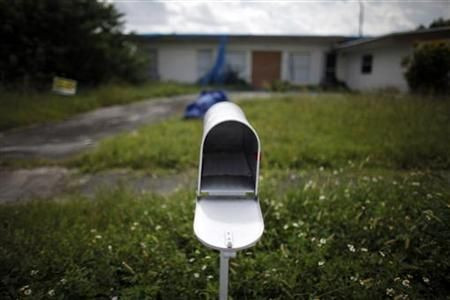U.S. Postal Service Faces Possible Default, Shutdown

The ailing U.S. Postal Service is on the verge of defaulting on a $5.5 billion payment unless Congress intervenes, sources told the New York Times.
The post office has for years been undercut by the Internet, as emails replace conventional letters and catalogues become instantly available online. Employee salaries are also a huge factor, as generous union contracts mean that nearly 80 percent of the post office's costs go to paying workers.
The problem has become dire enough that the agency is facing a $9.2 billion deficit, and may have to close down entirely without an influx of money to help pay off its debts. The $5.5 billion bill is to help cover the healthcare of future retirees, but the post office may run out of money to pay its current employees by early next year.
Our situation is extremely serious, the postmaster general, Patrick R. Donahoe, told the New York Times. If Congress doesn't act, we will default.
But at a time when Congress has been squabbling over every funding decision, including how to locate money to assist the victims of Hurricane Irene, that action could be hard to come by. The post office is already examining a series of cost-cutting initiatives like closing thousands of branches and laying off as many as 120,000 employees.
The situation is dire, said Thomas R. Carper, the Delaware Democrat who is chairman of the Senate subcommittee that oversees the postal service. If we do nothing, if we don't react in a smart, appropriate way, the postal service could literally close later this year. That's not the kind of development we need to inject into a weak, uneven economic recovery.
Some of the measures proposed by the post office have also run into resistance from lawmakers. For example, officials have sought approval to end Saturday delivery, something lawmakers from rural states have vigorously opposed.
The postmaster general has focused on several approaches that I believe will be counterproductive, said Sen. Susan Collins (R-ME). They risk producing a death spiral where the postal service reduces service and drives away more customers.
© Copyright IBTimes 2025. All rights reserved.





















